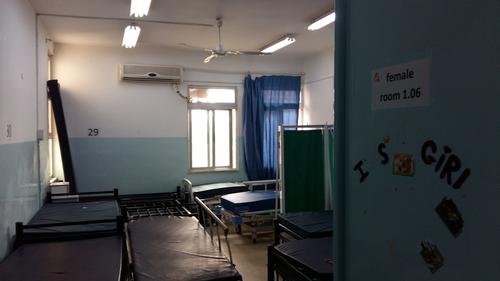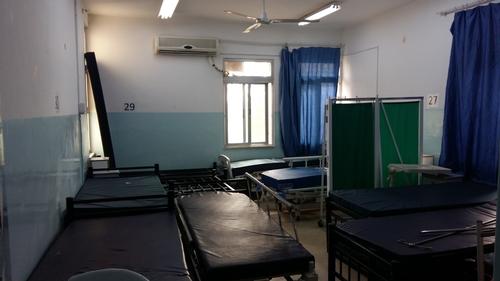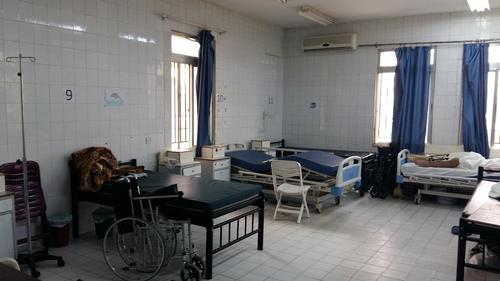- The humanitarian and health situation of the Syrians stranded at Jordan’s north-eastern border in the desert area known as the ‘Berm’ is expected to further deteriorate in the coming months as they face a second winter.
- In response, MSF again reiterates its call for direct access to those stranded at the ‘Berm’ in order to assess and respond to their medical needs and ensure the equal provision of quality medical care.
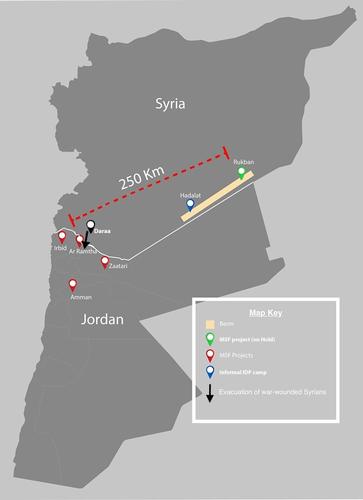
Five months have passed since Jordan sealed its borders with Syria, a decision that has seriously impacted the access of over 75,000 Syrians, three-quarters of them women and children, to basic quality medical care. Stuck in the desert for over two years, humanitarian actors had been unable to provide proper assistance even before the border closure, and the situation has become even more dismal.
While the 75,000 Syrians at the ‘Berm’ stand powerless in the face of political decisions made by both the Government of Jordan and the international community, their dire humanitarian situation and almost impossible living conditions threaten to worsen dramatically as a typical desert winter rolls in.
“The weather is becoming colder and temperatures are expected to drop below zero,” says Dr Natalie Thurtle, MSF’s Medical Team Leader of the ‘Berm’ project. “In the near future, we expect to hear of young children dying of hypothermia, because this is something that happened last year.”
Under the current miserable living conditions at the ‘Berm’, Syrians living in flimsy, makeshift tents that cannot withstand the strong winds of winter will be forced to face even more challenges to simply survive. An absence of infrastructure poses the greatest difficulty, with those stranded at the ‘Berm’ having no access to basics such as proper winter clothing, hot water, electricity, firewood, or any form of heating that could keep their bodies warm and sustain them during the cold weather.
Likewise, meaningful access to food and other essentials has been very limited since the closure of borders on 21 June, leading to serious health complications among those sheltering in the area.
“They haven’t been provided with food since early August, so of course we are hearing increasing reports of malnutrition. In the last week alone, we received 140 unconfirmed reported cases of malnutrition in the Berm. Life in the Berm is becoming increasingly desperate,” said Thurtle.
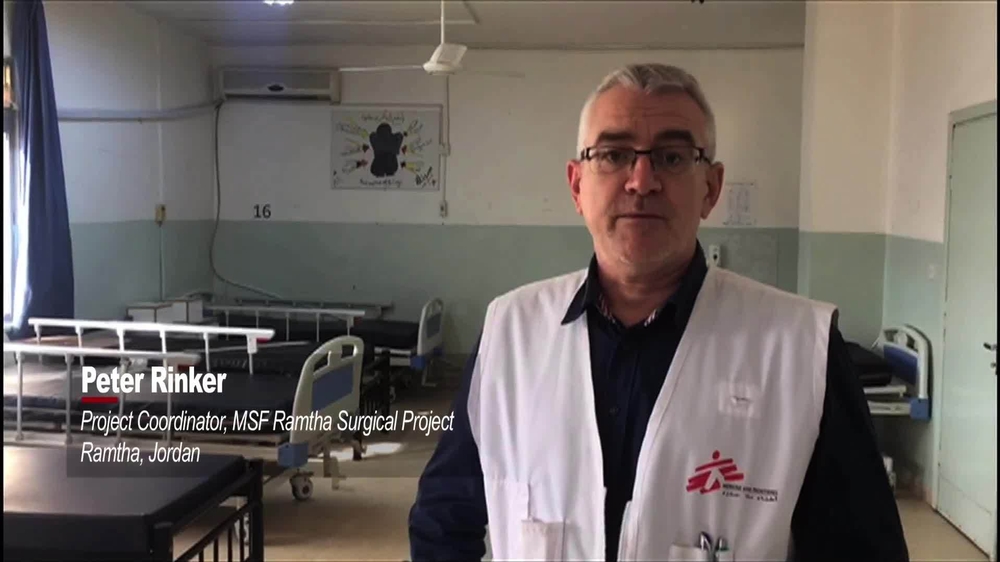
Ramtha project: five months after Jordan/Syria border closed
Moreover, 250 kilometres west of the ‘Berm’, at the northwestern borders with Syria, war-wounded Syrians continue to be denied access to the Jordanian border town of Ramtha. The border closure has halted the medical evacuation of wounded Syrians from Dara’a governorate in southern Syria to Ramtha hospital, where MSF has been running an emergency surgical project for more than three years providing lifesaving medical treatment to Syrians injured in the conflict. Today, despite reports of the intensification of violence and fighting in southern Syria, MSF’s wards in Ramtha stand almost empty. Should the situation at the borders remain unchanged, MSF fears that its ongoing programmes in Jordan which address the medical needs of war-wounded Syrians could be forced to close.
To this end, MSF strongly calls on the Government of Jordan to remove barriers imposed on the provision of lifesaving medical care by allowing the medical evacuation of war-wounded Syrians, especially vulnerable women and children, to MSF’s Ramtha emergency surgical project.
MSF operated a mobile health clinic at the ‘Berm’ for 23 days beginning on 16 May 2016 to provide primary health care and reproductive health care. The majority of patients were women and children under five. During this time, MSF saw 3,501 patients, provided consultations to 450 pregnant women and delivered one baby. In addition, at its Ramtha project, MSF continues to provide lifesaving surgical care, as well as rehabilitative post-operative care to war-wounded Syrians who were able to cross into Jordan prior to the closure of borders. Since September 2013, MSF has seen more than 2,427 wounded in the emergency room of Ramtha hospital, and performed more than 4,500 surgical interventions on Syrian patients, including more than 800 major surgeries.



